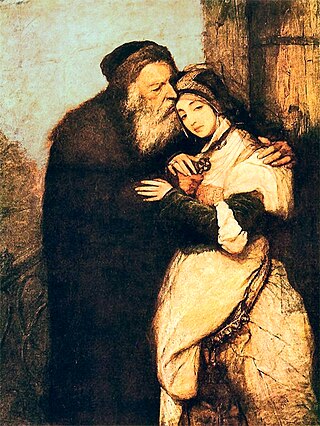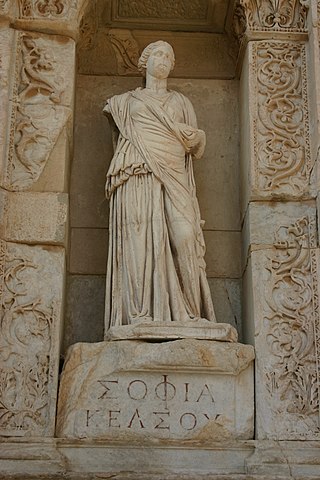Betty or Bettie is a name, a common diminutive for the names Bethany and Elizabeth. In Latin America, it is also a common diminutive for the given name Beatriz, the Spanish and Portuguese form of the Latin name Beatrix and the English name Beatrice. In the 17th and 18th centuries, it was more often a diminutive of Bethia.
Andrea is a given name which is common worldwide for both males and females, cognate to Andreas, Andrej and Andrew.
Amanda is a Latin feminine gerundive name meaning, literally, “she who must be loved”. Other translations, with similar meaning, could be "deserving to be loved," "worthy of love," or "loved very much by everyone." Its diminutive form includes Mandy, Manda and Amy. It is common in countries where Germanic and Romance languages are spoken.
Millie is a feminine given name, or diminutive form of various other given names, such as Emily, Millicent, Mildred, Camille, Camilla, Camila, Emilia, Maximillian, or sometimes Amelia.
Ingrid is a feminine given name. It continues the Old Norse name Ingiríðr, which was a short form of Ingfríðr, composed of the theonym Ing and the element fríðr "beloved; beautiful" common in Germanic feminine given names. The name Ingrid remains widely given in all of Scandinavia, with the highest frequency in Norway. Norwegian usage peaked in the interbellum period, with more than 2% of newborn girls so named in 1920; popularity declined gradually over the 1930s to 1960s, but picked up again in the late 1970s, peaking above 1.5% in the 1990s.
Lina is an international feminine given name, mostly the short form of a variety of names ending in -lina including Adelina, Angelina, Carmelina, Carolina, Catalina, Emelina, Evangelina, Evelina Karolina, Italina, Marcelina, Melina, Nikolina, Paulina, Rosalina, and Žaklina.

Yasmin is usually a feminine given name, sometimes also a surname. Variant forms and spellings include Yasemin, Yasmeen, Yasmina, Yasmine, and Yassmin.
Danielle is a modern French female variant of the male name Daniel, meaning "God is my judge" in the Hebrew language.

Jessica is a female given name.

Sophia, also spelled Sofia, is a feminine given name, from Greek Σοφία, Sophía, "Wisdom". Other forms include Sophie, Sophy, and Sofie. The given name is first recorded in the beginning of the 4th century. It is a common female name in the Eastern Orthodox countries. It became very popular in the West beginning in the later 1990s and became one of the most popularly given girls' names in the Western world in the first decades of the 21st century.
Monica is a female given name with many variant forms, including Mónica, Mônica, Monique (French), Monika, Moonika (Estonia), and Mónika (Hungarian).

Jennifer, also spelled Jenifer or Jenefer, is a feminine given name, the Cornish form of Guinevere, that became popular in the English-speaking world in the 20th century.
Sonia is a feminine given name in many areas of the world including the West, Russia, Iran, and South Asia. Sonia and its variant spellings Sonja and Sonya is used in some countries as an abbreviation of Sofiya.
Emilia is a feminine Italian given name of Latin origin. The name is popular all over Europe and the Americas. The corresponding masculine name is Emilio. Emily is the English form of the Italian name.

Emma is a feminine given name. It is derived from the Germanic word ermen, meaning "whole" or "universal". It likely originated as a short form of names such as Ermengarde or Ermentrude. Its earliest use begins at least from the early seventh century, with Frankish royal daughter Emma of Austrasia and the wife of Eadbald of Kent found in written sources. Its popularity in the medieval era increased because it was the name of Emma of Normandy, mother of Edward the Confessor. Emmeline is a Norman variant of Emma that was introduced to England by the Norman invaders in the 11th century. The name is etymologically unrelated to Amalia, Amelia, Emilia, and Emily, all of which are derived from other sources, but all of these names have been associated with each other due to their similarity in appearance and sound. Emma has been used as a short form of some of these names or shares diminutives such as Em or Emmy with them.
Jamila (Arabic: جميلة) is a feminine given name of Arabic origin. It is the feminine form of the masculine Arabic given name Jamil, which comes from the Arabic word jamāl, meaning beautiful. The name is popular on a global scale, in regular use by both Arabic speaking and non–Arabic speaking populations and holds religious significance for some Muslims. Due to differences in transcription, there are several variations on how to spell the name.
Livia was the wife of Augustus and the most powerful woman in the early Roman Empire. Livia is a girl's name of Latin origin, meaning “blue”. From Roman times, this was the female derivative of the family name Livius. Livia is a common feminine given name in countries such as Brazil, Italy, Spain, Argentina, Uruguay, Cuba, France, Romania, Hungary. Livia was a literary favorite from the sixteenth century, appearing in the plays of John Fletcher and Thomas Middleton, and playing a minor role in Romeo and Juliet. Anna Livia Plurabelle is the name of a character in James Joyce's Finnegans Wake.

Clara or Klara is a female given name. It is the feminine form of the Late Latin name Clarus which meant "clear, bright, famous". Various early male Christian saints were named Clarus; the feminine form became popular after the 13th-century Saint Clare of Assisi, one of the followers of Saint Francis, who renounced her privileged background and founded the order of Poor Clares.
Milly is a feminine given name, sometimes used as a short form (hypocorism) of Mildred, Amelia, Emily, Millicent, Camilla, Camila, Camille, Camile, Emilia etc. It may refer to:
Gabriella is a feminine given name used in various languages. Its English spelling originates as an Italian feminine given name from the Hebrew name Gabriel. Girls who are named Gabriella often take on a shorter version of the name, such as Bella, Ella, Gab and Gabbi.







